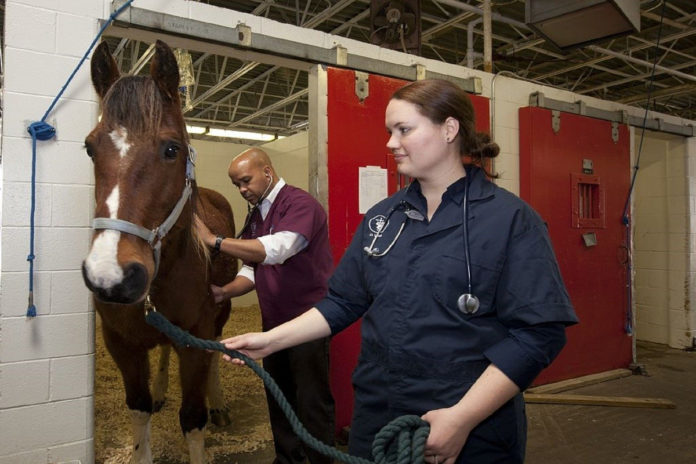Veterinary Ireland is urging farmers to remember to play their part to minimise the risk of COVID-19 transmission when a vet visits their holding this spring.
The body stressed that infection rates around in the community remain high, therefore, it is important that all those working with animals, be it farm livestock, equines or companion animals remain vigilant.
Busy spring period
In a statement, a spokesperson for Veterinary Ireland, said:
“Veterinary professionals have worked tirelessly and in line with the government’s advice to look after the health and welfare of the nation’s animals, and to try and keep their teams, clients and themselves safe.”
“Spring 2020 when this pandemic first emerged little was known about the disease. Now 12 months later, we are facing into the busy spring period once again.”
“Although veterinary professionals and practices continue to provide as full a range of services as possible, it is essential that the way in which we work is provided in a manner that supports social/physical distancing and good hygiene and biosecurity.”
What to do when a vet visits your farm
Vets when visiting farms, studs, racing yards etc are always aware of biosecurity measures to avoid the introduction and spread of disease between premises, now more than ever the human health aspect of that is of great importance.
- At all times, please be sure to adhere to the instructions and advice given by your vet be that general advice given by the practice or specific advice for the vet’s visit to your premises.
- Try to have animals ready in a holding area to minimise the amount of time that people need to be in contact.
- Appropriate PPE and, in particular, a facemask must be worn especially when close contact is unavoidable and when people are present of farms, yards etc for a prolonged duration, even when outdoors.
- Remember to socially distance: An adult cow or horse, nose to tail, is a good measure of an appropriate distance that should be maintained at all times.
- Elderly and vulnerable clients should make arrangements to have help on-site to avoid putting themselves at risk.
- If you or a member of your household is isolating, restricting your movements or awaiting a test result, inform your practice at the time of placing the call. That way a safe solution can be organised. For cattle clients, the Department of Agriculture has protocols in place to allow for the deferment of TB tests in these circumstances.
Follow guidelines
Recognising the high degree of close personal interaction in the veterinary practice premises, measures were put in place in these practices at the outset of the COVID-19 pandemic to keep the public and practice staff as safe as possible.
“Please follow your practice’s guidelines. Waiting times at practice premises may be longer but these measures are in the interest of the health and safety of our clients and staff alike.”
“The veterinary workforce is busy at this time of year looking after our clients and their animals. A sick vet means no vet and no vet means your animals cannot be cared for when needed.”
“By maintaining these safety measures, we can work together for a spring where your vet can continue to care for your animals at as close to full capacity as possible and where you and your family are kept safe and healthy whilst we await the full rollout of the vaccine that will free us from this pandemic.” the Veterinary Ireland spokesperson concluded.





